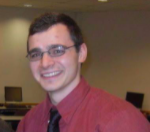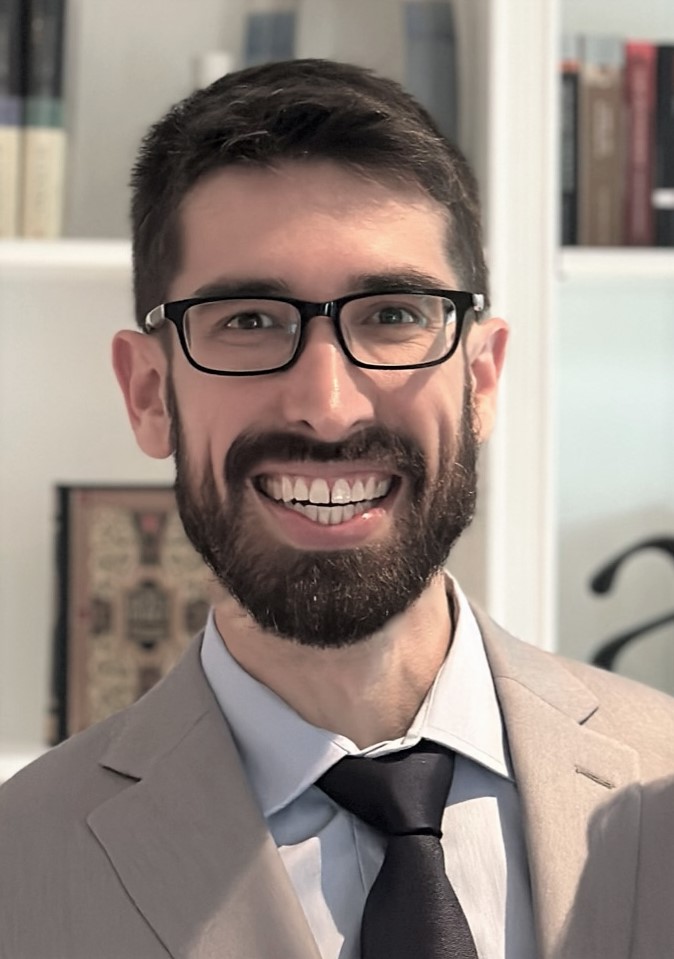Academics and courses
Pre-College students will join Skidmore College students in class and can choose from the following foundational liberal arts options. All of our courses are small – ranging from 5 to 20 students – and enrollment includes the benefit of numerous college support resources on campus, such as our writing center, library, and more.
- Residential students must enroll in two courses
- Commuting students may enroll in either one or two courses
2026 Course Descriptions
Course # • Course Title • Credits • Instructor • Lab Fee (if any)
Introduction to Cultural Anthropology (AN 101H)
Professor Joowon Park
M/T/W/TH 9:00 AM – 12:05 PM
4 Credits
An overview of concepts, theories, and methods of cultural anthropology. Students learn about central anthropological topics, such as kinship, gender, class, race, environment, ritual and religion, ethnicity, economy, and politics, and gain understanding and appreciation for cultural differences.
Note(s): Fulfills Social Sciences requirement; fulfills Humanistic Inquiry requirement.
Introduction to Computer Science I (CS 106)
Professor Michael Eckmann
M/T/W/TH/F 9:00 AM - 12:10 PM
4 Credits
An introduction to the principles of design, implementation, and testing of computer
programs. The course covers language features such as control structures, classes,
file I/0, and basic data structures including arrays. Other topics include recursion
and fundamental algorithms, such as elementary searching and sorting algorithms.
Note(s): Fulfills QR2 requirement.
Introduction to Microeconomics (EC 104)
Professor Rodrigo Schneider
M/T/W/TH 9:00 AM – 12:05 PM
4 Credits
Prerequisites: Placement in this course requires a score of at least 650 on the SAT Mathematics (MSAT I) examination, a score of at least 570 on any Mathematics SAT II subject examination (MSAT II), or a score of at least 28 on the Mathematics ACT examination, emailed to lroutled@skidmore. If scores are unavailable, Skidmore will determine eligibility through a review of the student's high school transcript.
An introduction to the study of markets. Students will develop the basic economic model of supply and demand to illustrate how choices regarding the production and distribution of goods and services are made by firms and households in a market economy. Students will also examine the possibility of market failure and the appropriate government response. Policy topics may include poverty and homelessness, health care, the environment, antitrust, discrimination, international trade, unions, and minimum wage laws.
Earth Systems Science with Lab (GE 101)• Lab fee $100
Professor Kyle Nichols
M/T/W/TH/F 9:00 AM – 11:40 AM
4 Credits
Introduction to Earth's dynamic systems and geologic processes. Students will study the planet from its deep interior to its oceanic, surficial, and atmospheric components to develop a scientific understanding of Earth as a holistic environmental system, of which the biosphere, including humanity, is one component. Within this context, students will examine topics such as rocks and minerals, mountain building, earthquakes, volcanoes, glaciers, surface and groundwater, and resources while also developing quantitative reasoning skills. Students will extend their understanding of our place on Earth by considering the interactions between geologic processes and humans.
Note(s): Five hours of lecture, guided activities, laboratory experiments, field trips, and problem-solving per week. Fulfills Fundamental QR and Scientific Inquiry requirements.
Human Genetics (BI 170) • Lab fee $100
Professor Bernie Possidente
M/T/W/TH/F 1:30 PM – 4:40 PM
4 Credits
An introduction to the principles of genetics and their application to human biology. Topics include the history of genetics; the structure, function, and inheritance of genes; medical genetics; and genetic engineering.
Note(s): Summer: Nine hours of lecture, six hours of lab per week. (Fulfills natural sciences and QR2 requirements.)
Writing Seminar II: Under the Influence (EN 105)
Professor Thaddeus Niles
T/W/TH/F 1:15 PM – 3:35 PM
4 Credits
Prerequisites: Enrollment is contingent upon successful completion of a writing placement. A writing prompt will be provided after the application is submitted.
"Under the Influence - Argument and Persuasion in Our Lives"
Argument seems inescapable. Its rituals have shaped the Western academic tradition, which is perhaps reason enough to study it more closely. But argument is also a central feature of our lives as citizens and consumers. In this writing course, students will consider the nature of persuasion, various methods of thinking critically, and approaches to translating these methods to academic texts. Class projects include essays examining the language and logic of persuasive appeals, as well as a final collaborative project.
Introduction to Gender Studies (GW 101)
Professor Tammy Owens
T/W/TH/F 1:30 PM - 4:35 PM
4 Credits
An introduction to the origins, purpose, subject matters, and methods of the interdisciplinary
study of gender. Students are expected to expand their knowledge of the relative historical
and present social conditions of people of different genders in different contexts
and to develop analytical skills for the examination of socially significant variables-race,
ethnicity, class, gender, and sexuality. Students will explore different and often
opposing understandings of what constitutes feminism and feminist action. The class
format will combine interactive lectures, reading assignments, discussion, formal
research and writing assignments, and other student projects. Ideally, students will
leave the class with an understanding of how gender structures cultural, political,
economic, and social relations in various contexts.
Note(s): Fulfills Humanistic Inquiry requirement.
Introduction to Media Studies (MF 101)
Professor Maura Jasper
T/W/TH/F 1:30 PM – 4:35 PM
4 Credits
An introduction to multiple forms of modern and contemporary mass media. The course examines film and at least two other forms of mass media (such as television, radio/audio, digital media, print mass media). Students will learn how to analyze media images, texts, and systems and understand how media both informs and is informed by social structures and forces.
*Courses subject to change. All course placements are subject to approval by the Pre-College Program Director.
Faculty
|
|
Michael Eckmann
|
|
|
Professor Eckmann joined the department in the Fall of 2004 as a lecturer of computer
science, and in the Fall of 2007, he was appointed to the position of assistant professor.
Mike received his Ph.D. in computer science from Lehigh University in 2007, with a
dissertation titled "Sifting for Better Features to Track -- Exploiting Space and
Time.” He also holds a Masters Degree in computer science and Bachelor’s degrees in
mathematics and computer engineering, all from Lehigh University. His research interests
are in computer vision and graphics and he has authored/co-authored a number of papers
in the area. He teaches computer science courses in the department. |
|
|
|
|
Maura Jasper
|
|
|
Maura Jasper is a visual artist whose work explores the intersections of history,
pop culture, and mass media. A graduate of the Massachusetts College of Art with an
MFA in Interrelated Media (2008), her work has been exhibited and screened at venues
including Artist's Space, Vox Populi, and the Institute of Contemporary Art in Boston.
She is an Associate Professor Emerita of Art at Ball State University in Muncie, Indiana,
and has been teaching at Skidmore College since 2022. She is currently serving as
Artist in Residence at the John B. Moore Center for Collaborative Documentary at Skidmore.
Born and raised in Worcester, Massachusetts, she now lives and works in Troy, NY. |
|
|
|
|
Kyle Nichols
|
|
|
Kyle Nichols, a geomorphologist, is an Associate Professor in the Department of Geosciences.
Kyle's research specialty is understanding the science of scenery (how landscapes
evolve). His research has taken him to different parts of the globe ranging from
the deserts of Africa (Namibia) and the tropical rainforests of Panama to the Great
Barrier Reef in Australia. In the United States, he worked in the Mojave Desert and
the Grand Canyon. His recent research interests include how to live in the unofficial
geologic epoch, the Anthropocene. At Skidmore, in addition to Earth System Science,
Kyle has taught Geomorphology, Hydrology, Glacial Geology, and Are we in the Anthropocene?
among other courses. |
|
|
|
|
Thad Niles
|
|
|
Professor Niles has been an ESL specialist at Skidmore since 2010, teaching composition
and coordinating the college's first intensive English program. Thad’s professional
interests include the learning experiences of international students, academic literacies/English
for Academic Purposes, Structural-Functional Linguistics/Genre Pedagogy, and new teaching
grammars. |
|
|
|
|
Tammy Owens
|
|
|
Dr. Tammy C. Owens is Assistant Professor of American Studies and Director of the Gender Studies Program at Skidmore College. An interdisciplinary scholar, her work lies at the intersections of Black girlhood studies, Black feminist theory, and American cultural memory. She studies how children and youth have been remembered and represented in U.S. history, paying particular attention to the ways their stories challenge dominant ideas of justice, power, and belonging. She is co-author of the foundational essay “Towards an Interdisciplinary Field of Black Girlhood Studies” and has published in journals such as Girlhood Studies, Women, Gender, and Families of Color, and Departures in Critical Qualitative Research. Her current book project examines the archival and emotional lives of Black girls, tracing how their experiences are documented, mourned, and at times erased in American culture—and what this reveals about national memory and loss. In the classroom, Dr. Owens is known for fostering environments that are intellectually rigorous, relationally attentive, and grounded in urgent real-world questions. At Skidmore, she teaches courses such as Black Feminist Thoughts, Black Girlhood Studies, and Growing Up in America, and she actively mentors students pursuing independent research on race, gender, media, and youth culture. As Director of the Gender Studies Program, she leads with a vision rooted in intersectionality, inclusion, and student-centered learning. She also contributes to college-wide initiatives on racial justice and innovative pedagogy through Mellon-supported teaching communities. Her scholarship and teaching have been supported by fellowships from the Carter G. Woodson Institute, the Schomburg Center for Research in Black Culture, and the Five College Consortium. Both in and beyond the academy, Dr. Owens is guided by commitments to justice, care,
and community. As a mother and scholar, she models how intellectual life and personal
values not only coexist but thrive together. |
|
|
|
|
Joowon Park
|
|
|
Dr. Joowon Park researches and teaches on the everyday experiences of violence, migration
and refugee resettlement, transnationalism, and militarized landscapes. His research
has been supported by the National Science Foundation, the Social Science Research
Council, and others. His book, Belonging in a House Divided: The Violence of the North Korean Resettlement Process, was published by University of California Press in 2023, and his peer-reviewed articles
have appeared in Anthropology & Humanism, Asian Ethnicity, and Asian Journal of Peacebuilding.
Dr. Park earned his PhD from American University in Washington, DC. |
|
|
|
|
Bernie Possidente
|
|
|
Dr. Possidente's general research area is genetic analysis of behavioral mechanisms.
His research focuses on the function of biological clocks in controlling circadian
(daily-endogenous) rhythms using mice and fruitflies as model systems: manipulation
of rhythms in mice and fruitflies with genetic, pharmacological, and photoperiod treatments
in order to identify functional properties of circadian system components and their
physiological mechanisms. |
|
|
|
|
Rodrigo Schneider
|
|
|
I received my Bachelor’s degree in economics from Insper in 2010; my Master’s degree in economics from the University of Brasília in 2012; and my Ph.D. in economics from the University of Illinois at Urbana-Champaign in 2018 and I have taught undergraduate courses in economics for more than 10 years. Teaching is my passion, and I'm particularly interested in teaching introductory courses and being able to relate economics with classic works of literature and philosophy. My current research is focused on public finance, policy analysis, Latin American studies, and voting behavior and I have published in peer-reviewed journals related to my field, such as Economic Policy, Economics & Politics, Public Choice, Fiscal Studies, Economía LACEA Journal, Latin American Research Review and Latin American Politics and Society. |
|
|







